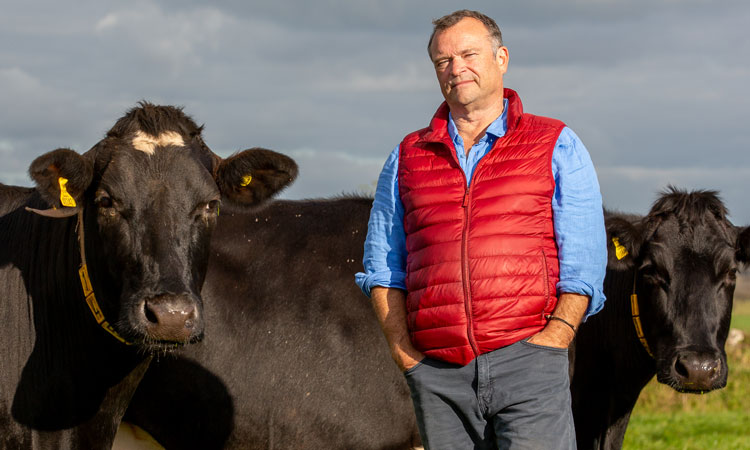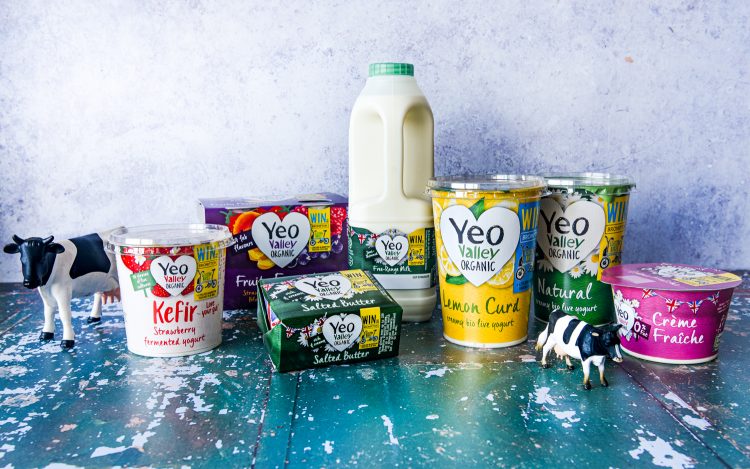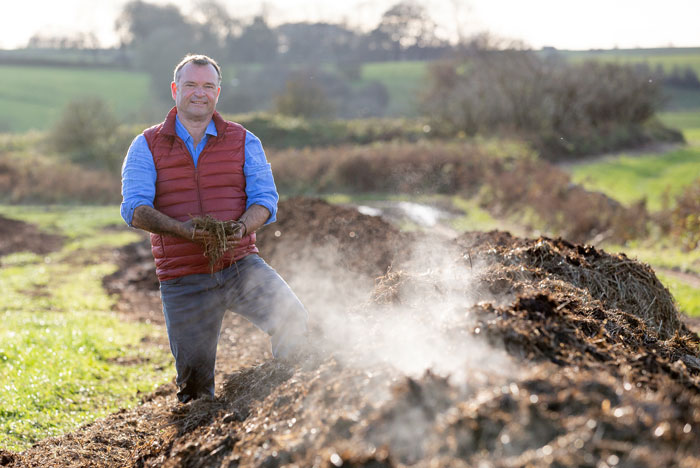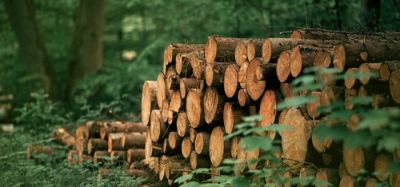Regenerative organic farming, Yeo Valley-style
- Like
- Digg
- Del
- Tumblr
- VKontakte
- Buffer
- Love This
- Odnoklassniki
- Meneame
- Blogger
- Amazon
- Yahoo Mail
- Gmail
- AOL
- Newsvine
- HackerNews
- Evernote
- MySpace
- Mail.ru
- Viadeo
- Line
- Comments
- Yummly
- SMS
- Viber
- Telegram
- Subscribe
- Skype
- Facebook Messenger
- Kakao
- LiveJournal
- Yammer
- Edgar
- Fintel
- Mix
- Instapaper
- Copy Link
Posted: 20 October 2021 | Tim Mead | No comments yet
The owner of Yeo Valley Tim Mead provides some straight talk on the promise, principles and practicalities of organic farming.


Organic means no chemical pesticides or artificial fertilisers; not using antibiotics as a preventative measure (antibiotics can be used for medicinal purposes if the animals become sick); and it means higher animal welfare and truly free-range livestock fed on a grass-based diet.
Our farms and cows are farmed organically, and all our products are made with organic ingredients that are certified by the Soil Association. We do this not only because products taste great, but because it’s better for our animals, land, wildlife and environment.
Organic milk is not only high in protein, calcium and iodine, but research suggests it also contains around 50 percent more omega 3 fatty acids than non-organic milk. Our bodies only produce a small amount of omega 3 fatty acids naturally, which means we need to get as much as possible from our diets to promote a healthy heart and blood circulation.
Why should we buy organic food?


In the last century, agriculture lost its way, with intensive farming methods depleting the soil’s nutrients and overdosing on chemicals and pesticides to make up for it. Organic farming encourages wildlife which feed on the bugs that could harm our crops, acting as a natural pest control. When you purchase something that is organic, you start to realise that there isn’t just one great benefit; it’s like a chain reaction that has multiple benefits, whether that’s for nature, the environment, or just a great tasting product.
At Yeo Valley Organic, we always strive to put nature first; organic farming does more than any other system to reduce greenhouse gas emissions from agriculture. Healthy, organic soils are one of the biggest carbon sinks, locking away – or ‘sequestering’ – carbon; keeping it out of the atmosphere and helping to prevent climate change.


Regenerative organic farming focuses on actual improvements to soil health and the overall quality and health of the land
Organic is great for the ecosystem and community dynamics within our wildlife. Without widespread chemical use, organic farms, like Yeo Valley, tend to have high levels of wildlife – on average 50 percent more than on other kinds of farms. We help this along by looking after habitats like hedgerows, giving wildlife the space to thrive!
We know how a small swap to an extra organic product when shopping can actually make a huge difference, and on our farms, we know that it’s better to work with nature rather than against it, following the seasons and planting different crops and grasses to take care of the soil for us. By buying organic you are supporting these initiatives to protect nature and our environment.
How is Yeo Valley made, from farm to spoon?
Yeo Valley is a real place, based in Somerset, and it inspires everything that we do. We’re a family farm and dairy business that has grown to become Britain’s largest organic brand and the third largest yoghurt brand in the UK.
We own a herd of free-ranging British Friesian cows and support other British farmers to turn the best of organic dairy into a wide range of natural, healthy products. Our cows spend lots of time grazing rich, green pastures as their diet is all natural, free from GMOs.
We farm organically as this guarantees the highest level of animal welfare, creates foods as nature intended and involves minimal processing.
What are the challenges of organic farming?
We’ve been an organic brand for more than 25 years, and throughout this journey we have had to find innovative approaches to farming organically. For example, organic standards mean you can’t use a nitrogen fertiliser, so we use clover instead. Clover is considered a nitrogen fixing plant, meaning that it will take nitrogen from the air and get it into the soil so that our crops and grass can use it to grow.
While organic farming is sometimes a battle against the weather, it can also be a race against time, especially in Autumn. Our organic cows must genuinely be free range and spend most of their time outside grazing on grass, on average 200 days per year! In fact, their total diet must be at least 60 percent grass based (but we aim for more). Therefore, as summer turns to autumn and the growth of the grass starts to slow down, we are preparing the silage, which is preserved grass through fermentation, that is used to feed the cows organically from late autumn until early spring. As you can imagine, a lot of time and effort is required to work out the perfect balanced diet for each of our cows, and most of their food is grown on the farm.
Has climate change made this more difficult?
Sustainability is central to everything that we do. As farmers, we see first-hand the power of nature, and how humans can damage it.
In recent years, we have noticed the dramatic change in weather, as global warming makes extreme and uncertain rainfall more prevalent in the UK and around the rest of the world. This has proved challenging, but it has made us more determined to focus on regenerative farming methods being part of the solution for mitigating climate change.
As farmers, we fundamentally rely on soil. It produces 95 percent of our food, be it the crops we eat, or grasses and other plants to feed animals for meat; restoring our soil through regenerative organic farming is key to our future. And this is just one aspect we will be focusing on.
Why is organic food more expensive than non-organic?


Tim Mead explains: “At Yeo Valley we follow practices that will positively benefit the soil to mitigate the effects of climate change.”
It goes without saying that organic cows need organic food. They’re designed to eat grass, and we’re firm believers that free-ranging, pasture-fed cows produce the very best milk. During the winter months, when it’s too wet or cold for them to be outside, we bring them into our warm, dry barns and feed them conserved grass, cereal crops and hay – all organic and entirely produced on the farms. Once the spring comes, they all go back to the fields to graze on the fresh grass in the clover-rich fields. Of course, there will be higher costs associated with organic approaches, but we wouldn’t have it any other way. As organic farmers, we see ourselves as custodians of the land, which means we work to leave it in a better condition than we found it for future generations.
Does this restrict your consumer base and will the cost ever come down?
One of our core values is being real; whether that’s the food we make or being honest and down to earth. We understand that our products aren’t the cheapest on the market but, we firmly believe that organic is the way forward to benefit our health, wildlife and the planet, and we are always looking to do more.
Rather than telling people, we prefer to inspire and encourage others to join us by highlighting the benefits of buying and eating organic food. If more people do that, more farmers will convert to organic! Therefore, we are working towards a world in which we all live in a more sustainable way, to help restore the balance of nature by inspiring people to create and eat organic food and to help tackle climate change.
Yeo Valley Organic is focused on regenerative organic farming – what does this mean?
Regenerative organic farming is a step onward from not using chemicals and pesticides – it focuses on actual improvements to soil health and the overall quality and health of the land. At Yeo Valley we follow practices that will positively benefit the soil to mitigate the effects of climate change. This includes composting, mob grazing, biodiverse planting and herbal leys, while rotating crops and grass around the land to make it more fertile and keep pests and disease at bay. This isn’t new; it’s one of the ancient ways of farming it’s sustainable and reflects nature’s cycles.
How can Yeo Valley Organic measure the success of its regenerative farming practices?
A successful soil testing pilot has shown that by using regenerative organic farming methods, Yeo Valley’s family farm (Holt Farm) in Somerset has the potential to lock away carbon. The findings present a valuable alternative to carbon offsetting and pave the way for The Yeo Valley Organic Soil Carbon Project – a new five-year programme of regenerative organic farmer-led practical trial work at initially 20 supply farms (extending further in 2022 and beyond). The brand is also measuring its carbon footprint and by the end of the year it will be on a reduction programme with the Carbon Trust.
What’s next for regenerative organic farming at Yeo Valley Organic?
We have several future plans on the table including ambitions to create one of the UK’s largest areas of agroforestry (integrating trees, forage and the grazing of animals in a mutually beneficial way) in 600 acres of woodland in Somerset; and experiments with Biochar for onward use by growers and gardeners for a closed loop approach.
More information on the project and its progress will be coming soon online, alternatively scan our on-pack QR code or visit the Yeo Valley website for more organic news https://www.yeovalley.co.uk.
Further initiatives…
We’ve partnered up with grassroots community gardening charity Incredible Edible Bristol to kick-start more equitable organic gardening learning.
We’re supporting a range of online and in-person ‘How to Grow’ courses, as part of a new Yeo Valley Organic bursary scheme offering free funded places.
This partnership has been developed in response to a growing need for accessible and affordable learning options for people who want to know how to grow using organic principles and how our gardening impacts the wider environment.









